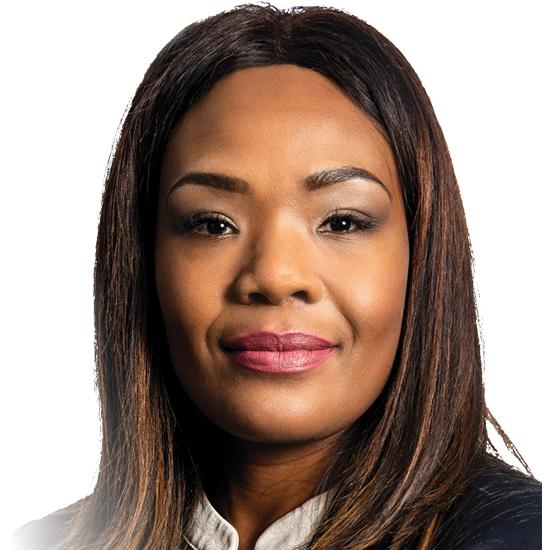AG calls
for urgent action to improve education for children with disabilities

Auditor-General (AG) Tsakani Maluleke has urged government to intensify its efforts in providing equitable and quality education for children with disabilities. Presenting the National Audit Office’s performance audit report on South Africa’s progress in addressing the educational needs of children with disabilities, Maluleke acknowledged the positive strides made but highlighted several critical deficiencies that require urgent attention.
As a signatory to the United Nations (UN) Sustainable Development Goals (SDGs), South Africa is committed to monitoring and reporting its progress towards achieving the set targets, with the aim of making significant advancements by 2030. The audit specifically assessed the country's progress towards SDG 4.5, focusing on ensuring equal and equitable quality education for children with disabilities by 2030.
Audit focus
The report emphasises that South Africa is expected to demonstrate an unequivocal commitment to eradicating poverty, ending discrimination and reducing inequalities that hinder individuals from reaching their full potential.
“To assess the commitment to the SDG principle of leaving no one behind, the AGSA selected the SDG 4.5 target, which calls for eliminating gender disparities in education and ensuring equal access to all levels of education and vocational training for vulnerable groups, including persons with disabilities, indigenous people and children in vulnerable situations by the year 2030,” explained the AG.
Maluleke added that the AGSA's audit specifically narrowed its focus to providing equal and equitable quality education for children with disabilities, examining key aspects such as the legal and policy framework, data management, collaboration, resource allocation and monitoring support.
Deficiencies in policy implementation
Several deficiencies were identified in the implementation of policies. The Department of Basic Education (DBE) did not fully implement the provisions of the 2001 Education White Paper 6 on Special Needs Education. Similarly, the early childhood development provisions outlined in the 2016 White Paper on Disability Rights were not fully implemented by the Department of Women, Youth and Persons with Disabilities (DWYPD).
The AG also noted that limited support from district-based teams has negatively impacted the quality of education provided to learners with disabilities.
“Also, inadequate tracking and provision of quality education to children aged between zero and four years will affect the attainment of SDG 4.5 target by 2030,” cautioned the AG.
Data and information management
On data and information management, the audit found that the DBE did not ensure accurate and consistent data capture of learners with disabilities in the South African School Administration and Management System (SA-SAMS). Inconsistent reporting was also noted among key role-players regarding the number of children with disabilities in the country.
Maluleke stressed the importance of accurate and consistent data to set realistic targets and effectively monitor progress towards SDG 4.5. She added that understanding the number of children with disabilities attending school – and those not attending – is crucial for effective planning and resource allocation.
Resource allocation
The audit identified several issues with resource allocation, including:
Inadequate provision of specialised transport for learners with disabilities. Learners who required such transport were not provided with it, and those using mainstream scholar transport did not receive the necessary support.
Unsuitable school infrastructure that did not cater to the needs of learners with disabilities.
A shortage of qualified teachers trained in inclusive education and special needs education.
Inadequate provision of assistive devices for children with disabilities.
Monitoring and support
The report also highlighted several monitoring and support issues:
Delayed responses to requests for assistance for learners with severe disabilities.
A lack of effective monitoring and support for full-service schools, preventing children with disabilities from receiving equal education.
Call to action
In response, the AG urged the departments of education and other key stakeholders to take immediate action to address these issues in order to meet the SDG 4.5 targets. Maluleke’s recommendations included introducing measures to address the educational needs of children with disabilities under the age of five, ensuring that strategies are in place for those not attending school, improving resource allocation and strengthening inter-departmental collaboration.
Government response
Maluleke acknowledged that government had begun addressing some of the audit’s findings. For example, Basic Education Minister has established a ministerial task team to review the the 2001 Education White Paper 6 on Special Needs Education, with a draft report already produced.
The DBE has also partnered with the British Council to train in-service teachers and develop a curriculum for initial teacher education in specialised needs education. Additionally, steps are being taken to improve data accuracy in SA-SAMS.
Collaboration
The DBE has forged partnerships with other government departments to offer integrated support for learners with disabilities. These include working with the DWYPD to improve access to education, aligning with the 2016 White Paper on Disability Rights, collaborating with Independent Communications Authority of South Africa and the Department of Communications and Digital Technologies to provide ICT and assistive devices to special schools, and partnering with the departments of Justice and Constitutional Development, and Social Development to monitor educational programmes for children in conflict with the law.
The provision of equal and equitable quality education for children with disabilities is a fundamental human right, as outlined in the Constitution, the UN Convention on the Rights of Persons with Disabilities and other international frameworks. While the report recognises the achievements made to date, Maluleke concluded by emphasising that urgent action is still needed to address the identified deficiencies to ensure better outcomes for children with disabilities.
“The different role players in the accountability ecosystem all have a responsibility to drive, deepen and insist on accountability that will ensure the betterment of our children’s lives through equal, equitable and quality education,” concluded the AG. ❖




